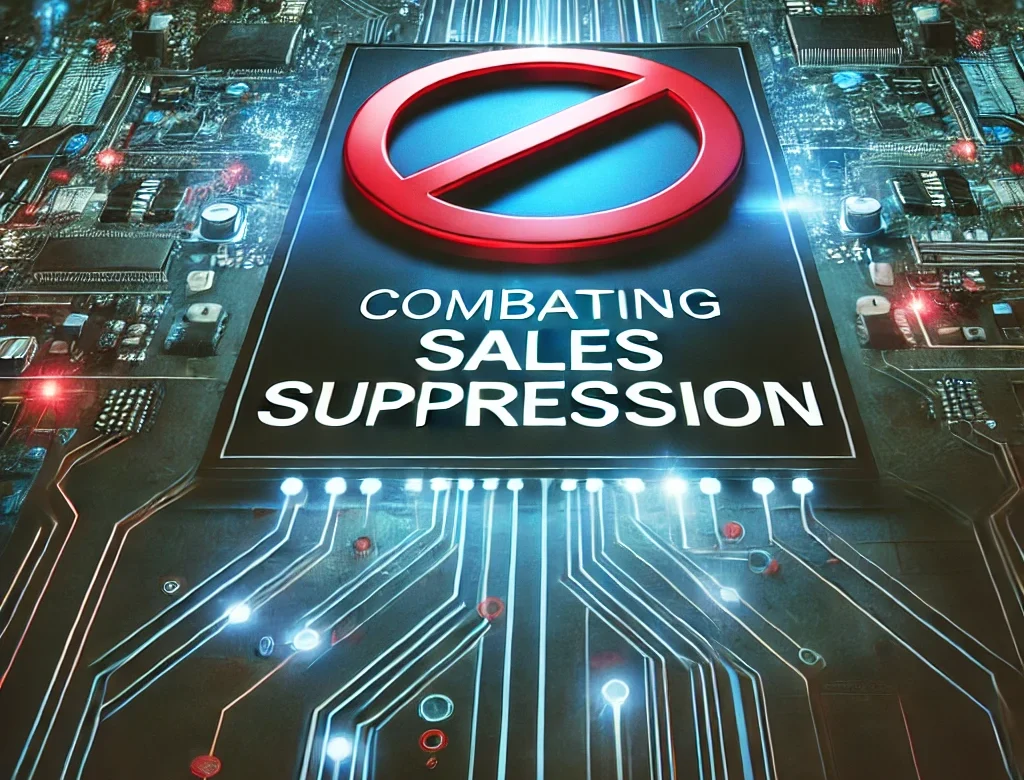How the Serious Financial Crime Taskforce is acting against electronic sales suppression tools.
On this page
- Businesses illegally using ESSTs
- Taskforce warning
- What should you do?
- Accessing the SFCT ESST Intelligence Bulletin
- Case study
Businesses Illegally Using ESSTs
The Serious Financial Crime Taskforce (SFCT) is aware of businesses using electronic sales suppression tools (ESSTs) to underreport their taxable income. With the increased use of digital technologies and online interactions, we are seeing:
- Businesses supplying and using ESSTs or software to avoid paying tax.
- Businesses connecting ESSTs to point-of-sale systems to:
- Permanently delete, re-sequence, or misrepresent transactions.
- Reduce sales values.
- Produce fake tax records.
- ESSTs taking the form of cloud-based software and linking to domestic and offshore payment platforms.
It has been illegal to produce, supply, possess, use, or promote ESSTs in Australia since October 2018.
Taskforce Warning
The SFCT is providing a strong warning to businesses about ESSTs.
We understand there are sophisticated networks of operators actively developing and marketing these tools to small business owners. They often package them as an “all-in-one complete business solution” with low commissions, website presence, and an online ordering tool.
To identify these businesses, we use:
- Intelligence and data on lifestyle indicators.
- Bank information.
- Small business benchmarks.
- Tip-offs from the community.
These businesses will be dealt with the full force of the law.
What Should You Do?
If you are a business using ESSTs, you should come forward and make a voluntary disclosure rather than wait for us to contact you. We may be able to reduce your penalties.
Business owners should exercise reasonable care when choosing a point-of-sale and other business systems to ensure they:
- Meet their business needs.
- Comply with the law.
If you suspect a person or business is involved in producing, supplying, possessing, using, or promoting ESSTs or software:
- Make a tip-off online.
- Phone the hotline on 1800 060 062.
If you prefer to speak with us in a language other than English, you can call the Translating and Interpreting Service (TIS National) on 13 14 50 for help with your call.
Accessing the SFCT ESST Intelligence Bulletin
The bulletin warns businesses about the illegal use of Electronic Sales Suppression Tools.
Download the SFCT ESST Intelligence Bulletin (PDF, 117KB).
Case Study: Choosing the Right Point-of-Sale System
When purchasing a point-of-sale system for your business, exercise due diligence and thoroughly research a product before purchasing.
Dodgy operators are manufacturing point-of-sale systems with electronic sales suppression tools (ESSTs). ESSTs can take many forms—devices, hardware, cloud-based software, or other means. This illegal software allows businesses to untraceably falsify, manipulate, hide, delete, or prevent the creation of selected transactions from their electronic records.
They are marketed to businesses as integrated business products and solutions with:
- Online ordering
- Interactions with web content
- Registered and unregistered payment platforms
- FinTech services (such as mobile payment apps and online banking)
- Marketing solutions
Many of these are offered as subscription services with ongoing weekly or monthly fees, often with low upfront costs.
Through ESSTs, these operators can:
- Steal money
- Steal client data
- Hold business owners to ransom
- Assume web domain names
- Alter public-facing business information, such as hours of operation
If it seems too good to be true, it probably is.
Example: Sabrina’s Fish and Chip Shop
Sabrina owns a fish and chip shop. Her business has always been cash-based, making it easy to pay her employees from the till and under-declare her takings. Although Sabrina knew this wasn’t right, she continued to find ways to avoid her tax obligations.
Tech-savvy Sabrina discovered a product that could help her reduce her taxable income—an electronic sale suppression tool (ESST). She purchased a new point-of-sale system from a dodgy operator who attached a cloud-based ESST to it.
For a while, Sabrina continued to run her business as usual. The illegal ESST manipulated the store’s transaction records, allowing her to delete and re-sequence transactions at the touch of a button. Sabrina used the extra money to quickly pay off a large mortgage on a seaside property, buy a boat, and transfer money to her family overseas.
What Sabrina didn’t know was that one of her employees, Paul, had noticed something strange. When closing up for the day, Paul observed that the point-of-sale transaction record was showing unusually low profits on one of their busiest days. He reviewed the previous week’s transaction records and found that this discrepancy kept occurring. Paul found this suspicious and contacted the ATO tip-off hotline to report it.
After receiving the tip-off, the ATO referred the matter to the SFCT, which began an investigation into Sabrina’s tax affairs. Upon closer inspection, the SFCT found:
- Sabrina’s personal spending was up to 8 times the amount declared as income.
- Over 5 years, Sabrina had underreported nearly $4 million in business income.
There was strong evidence showing that Sabrina, despite being well-educated and aware of correct business practices, had deliberately chosen to underreport her income in her tax returns.
The estimated penalties Sabrina is now liable for are around $1.4 million.
Please note: Many of the comments in this publication are general in nature, and anyone intending to apply the information to practical circumstances should seek professional advice to independently verify their interpretation and the information’s applicability to their particular circumstances.










